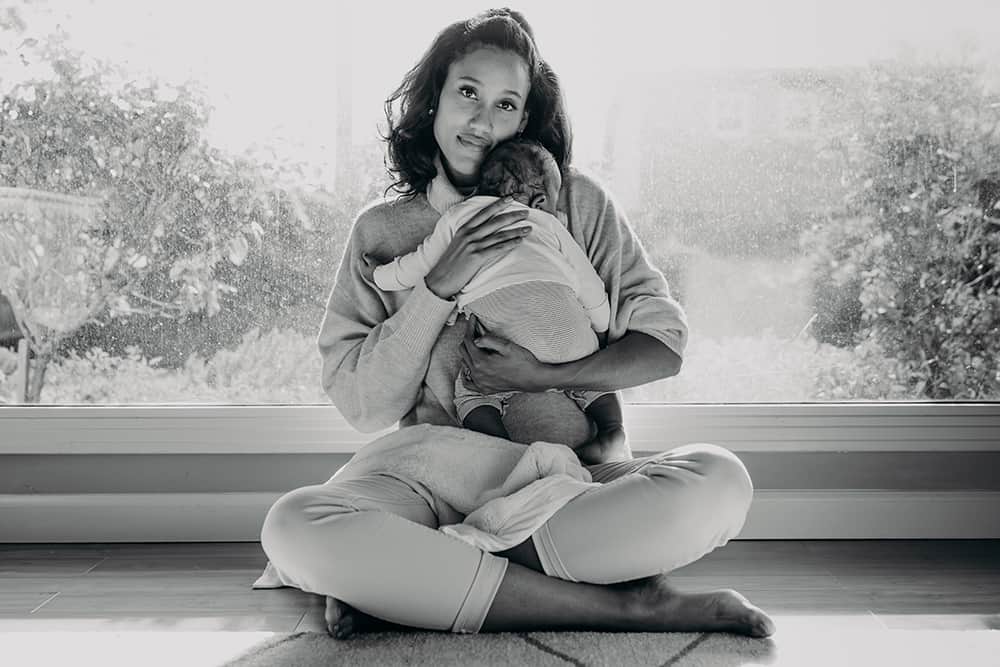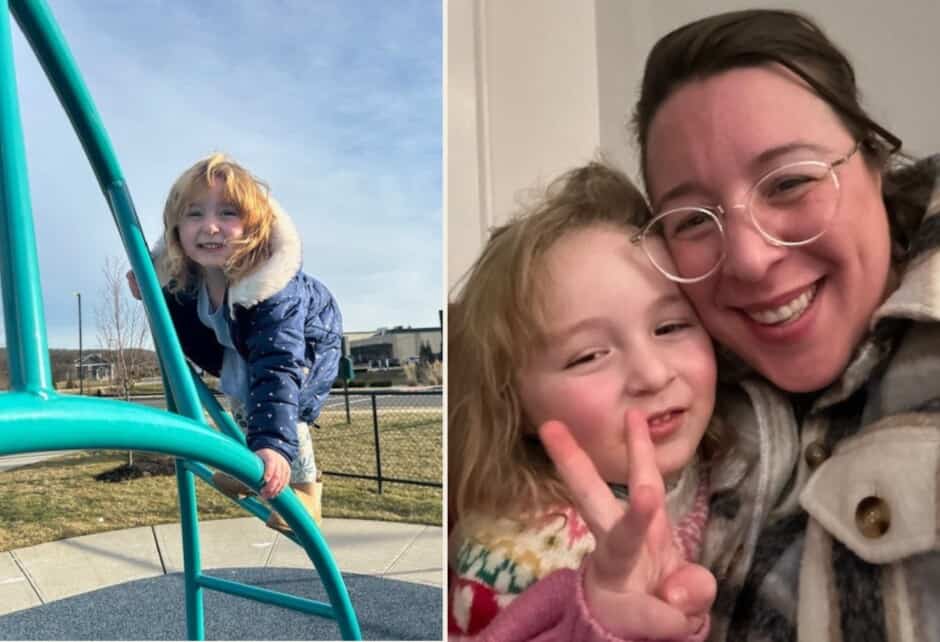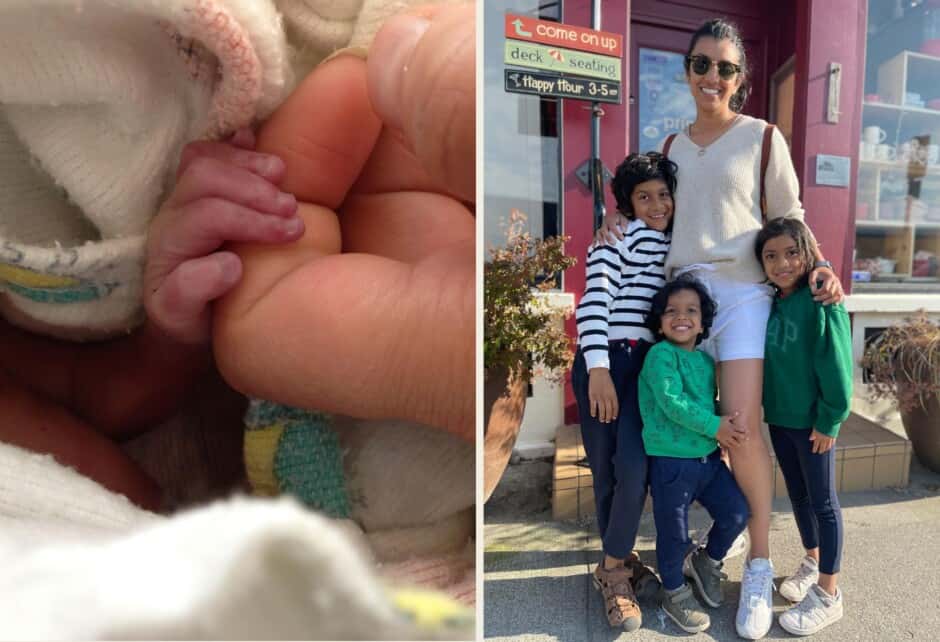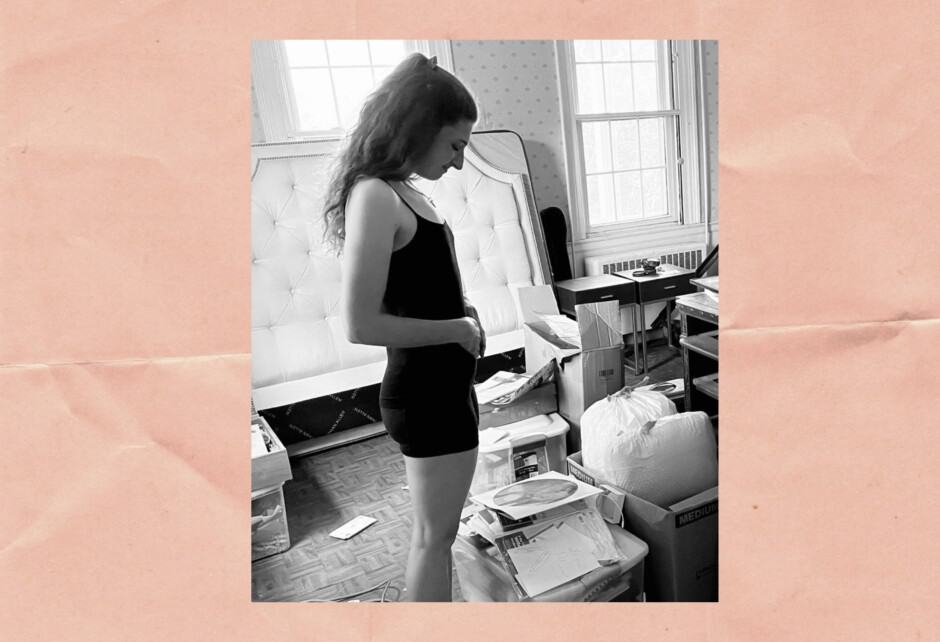
We Need To Change the Way We View Motherhood
Written by Anna Malaika Tubbs
Photography by Shannon Rock of Preserve Studio
Today’s essay comes from mother, writer, and academic Anna Malaika Tubbs, whose first book comes out today. The Three Mothers: How the Mothers of Martin Luther King, Jr, Malcolm X, and James Baldwin Shaped a Nation, takes a hard (and rare) look at the matriarchs behind some of the brightest lights in Black history and the fight for civil rights. Below, Anna (mama to Michael Malakai, 1) on why the value of motherhood needs to be recognized and honored in order for the world to change.
My son recently turned 1 year old. My husband and I watched as he cautiously touched his first cake before proceeding to plant his mouth in the middle of it. He looked up at us after a few seconds with pure delight, white frosting spread across his face. My heart warmed with joy and I felt tears well up in my eyes. I love watching him experience everything for the first time, seeing his mind work as he takes in new flavors and concepts. Reflecting on his first year, I thought to myself, “What an amazing boy,” and I also thought “I’m an amazing mom.” Yes, I was proud of him and I was proud of myself. This feeling might seem like a strange one for a mom to feel on her child’s first birthday. We don’t often speak of celebrating moms in these moments, but I have come to realize that I see motherhood very differently than most.
I realized this when my husband and I announced that we were expecting. Of course, the congratulatory messages poured in but so did some very sad and disturbing conversations as the months passed. Friends of mine expressed their deep fears of becoming mothers. They worried about losing their identities and about no longer being able to pursue their goals and dreams. When my husband and I spoke about working together to prepare for my labor, others would often interject commentary on what goes on “down there” being scary and gross. In our society I see a sentiment that the role of motherhood comes with a kind of second class citizenship status and a belief that the changes women’s bodies undergo are less than extraordinary. In my pregnancy, I wanted to focus on the empowering nature of creating life inside of me, on the excitement of witnessing parts of my body, mind, and soul change as life moved through me, on the ability I held to influence my child and hopefully through the lessons I could impart to them, influence the world.
Before becoming pregnant, while being pregnant, and during the first year of my son’s life I have been writing both a dissertation and a book about motherhood. Through researching and recovering the lives of Alberta King, Berdis Baldwin, and Louise Little, the mothers of Martin Luther King Jr., James Baldwin, and Malcolm X, respectively, I was given the life-changing gift of studying three incredible mothers while diving deep into the world of maternal theory and learning about the liberatory power of revolutionary motherhood. As a result, I see mothers as the stars of the show, the shot callers, the ones in control of their and their families’ journeys. I see the changes that come with motherhood as awe inspiring and powerful.
I want more people to see motherhood this way because I truly believe that if they did, it would change the world as we know it. Motherhood is not for everybody, but extraordinary things can happen when we see mothers in all the power and glory that they deserve. The view we hold of motherhood, and womanhood more broadly, influences the wellbeing and prosperity not only of individual families but of entire communities, cities, and countries.
In Of Woman Born, Adrienne Rich explains the importance of studying motherhood by saying, “the one unifying, incontrovertible experience shared by all women and men is that months-long period we spent unfolding inside a woman’s body.” The dismissal of the basic truth that everything begins with motherhood is intentional and, I believe, has come as a result of male insecurity. She writes, “there is much to suggest that the male mind has always been haunted by the force of the idea of dependence on a woman for life itself, the son’s constant effort to assimilate, compensate for, or deny the fact that he is ‘of woman born.’” Awareness of this forces us to notice the many ways in which such insecurity plays out. When the work mothers do in their home is undervalued, when women are told to cover up when breastfeeding their children, when young girls are taught to hide any evidence that they menstruate, these can all be seen as patriarchal responses to the power that women hold as givers of life. Whether they choose to become mothers or not, the potential of their power threatens those that do not hold it.
Mothers shape their children and in turn their world, making motherhood a form of creation and liberation. What is stifling and oppressive, the feelings my friends worry about, is when mothers are not given the support and recognition that they deserve. In the anthology Revolutionary Mothering: Love on the Front Lines, writers center mothers of color specifically and call attention to their ability to reshape a country and planet in desperate need of transformation. In one essay, June Jordan says, “Children are the ways that the world begins again and again. If you fasten upon that concept of their promise, you will have trouble finding anything more awesome, and also anything more extraordinarily exhilarating, than the opportunity or/and the obligation to nurture a child into his or her own freedom.” Mothers are holding and shaping the constant reimagining and evolution of our world, they deserve to be treated with the dignity and admiration that matches this capability.
We must question why motherhood is not already viewed this way, we must wonder how it is possible that the giving and sustaining of life could ever be seen as something that is weak, as something that is limiting, as something that might trap us. I am not saying that the feelings of lack of choice, of loss of identity, of limits being placed upon us are not real, I am saying that we are placing the blame in the wrong place. It is not motherhood that does this, it is a lack of environmental and institutional support that does. It is a mentality that the role is less important than it inherently is. It is so many things, but it is not motherhood.
I have the privileges of a family who can help me when I need it; A partner who understands that he is a co-parent and not a routine babysitter; A career that gave me time to be with my son in his earliest stages; Access to money that allows me to pay for quality childcare and healthcare that ensures my wellbeing; Degrees that have provided me the opportunity to educate myself on motherhood and more; and a home where my basic needs are more than met. These are the things that allow me to be the mother I choose to be, the mother I am so proud to be. These should not be privileges, they should be rights. The more we see the role of motherhood as the critical, creative, powerful identity that it is, the closer we get to securing these rights for all and transforming our world.
Mothers epitomize power, strength, and influence, and it is time they are treated as such.
Anna Malaika Tubbs is a writer who holds a Masters in Gender Studies from the University of Cambridge and a Bachelors in Anthropology from Stanford University. She is currently pursuing her PhD in Sociology. Her first book titled The Three Mothers: How the Mothers of Martin Luther King, Jr, Malcolm X, and James Baldwin Shaped a Nation is out now.
Share this story



